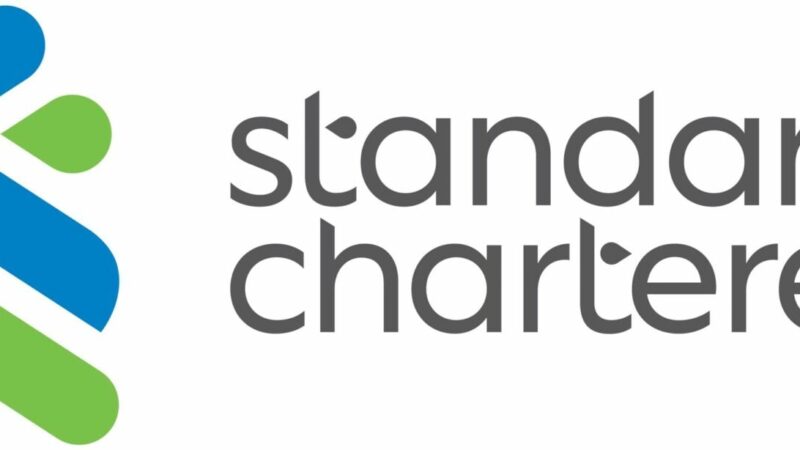Falling inflation fuels hopes for monetary policy easing
 Analysts have projected that the Monetary Policy Committee of the Central Bank of Nigeria would be considering a 50-75 bps rate cut as they begin their meeting on Monday (today).
Analysts have projected that the Monetary Policy Committee of the Central Bank of Nigeria would be considering a 50-75 bps rate cut as they begin their meeting on Monday (today).
The anticipated rate cut is driven by the steady decline in headline inflation, which, according to the National Bureau of Statistics reports, fell to 20.12 per cent in August 2025, from 21.88 per cent in July, while food inflation also eased year-on-year.
This trend strengthens expectations for rate cuts.
This decline marked the fifth month of deceleration of inflation, thus drawing optimism that the MPC would give thought to cutting the rate.
If the benchmark rate is cut, this would be the first time in years and the first time since the Bola Tinubu administration came into office, suspended the embattled Godwin Emefiele and appointed Fola Shonubi in June 2023 before appointing the current governor, Olayemi Cardoso, in September 2023.
At the May 2023 MPC meeting, before Tinubu came into office, the committee increased the benchmark rate to 18.5 per cent from 18 per cent in the previous meeting to mitigate rising inflation. Before the end of the year, the rate was hiked to 18.75 per cent. It was consistently increased in 2024 by over 800 bps, and the MPC has been in hold mode at its meetings in 2025.
Commenting on the possibility of a rate cut in its weekly market update, the analysts at Afrinvest highlighted persistent inflationary pressures in advanced economies, noting that this called for a cautious monetary policy stance.
“The US Fed, however, cut the fund rate by 25 bps in September, the first time this year, although inflation climbed to a seven-month high in the previous month.
In Africa, central banks in Egypt (-200 bps), Ghana (-350 bps) and Kenya (-25 bps) have largely followed a dovish path at their latest meetings, while South Africa bucked the trend by holding rates steady.
“Meanwhile, domestic conditions appear increasingly supportive of a rate cut. The Stanbic IBTC PMI climbed to a four-month high of 54.2 per cent in August, while gross external reserves rose to $40.2bn, the highest level since September 2019.
“Furthermore, the naira has appreciated 2.5 per cent so far in 2025, core inflation eased to a 2025 low of 20.3 per cent, and the average money supply growth has slowed to 19.3 per cent (vs. 63.8 per cent in 2024). Against this backdrop of favourable price dynamics, firm business expectations and positive external sector dynamics, we consider the macro environment ripe for a rate cut,” said the experts.
However, the analysts maintained that the risk of global reinflation, the volatile geopolitical landscape, the susceptibility of the energy markets to shocks and the influence of the base-year impact on the domestic inflation trend may constrain the MPC to a 50–75 bps rate cut this week.
“Should our expectation materialise, we expect a reinforcement of bullish sentiment in the fixed-income market, driven by prospects of further easing in November or early 2026 if the macro and global conditions remain supportive. Also, domestic equities are likely to see modest gains, tempered by the divergent earnings outlooks across sectors,” they asserted.
Cowry Asset analysts also highlighted the rate cuts by the U.S. Federal Reserve and the Bank of England in the past week and a stronger naira as being factors that would be considered at the meeting. They contend that the MPC would take a balanced approach to the matter.
The report noted, “The key question, however, is the extent of headroom available to the MPC to adjust its policy stance from the current benchmark rate of 27.50 per cent. While the disinflation momentum provides a window for policy flexibility, residual risks from FX passthrough, food supply bottlenecks, and global oil price volatility suggest the committee may tread cautiously in balancing the goals of anchoring inflation expectations with supporting growth. The sharp moderation in headline inflation in August could provide room for a potential policy shift, possibly even a symbolic rate cut to signal confidence in the disinflation trend.
“Still, Cowry Research thinks the MPC may tread carefully, given lingering risks from FX pass-through, structural food supply pressures, and the sticky trajectory of core inflation. In our view, the committee is more likely to strike a balanced tone, acknowledging the easing price pressures while keeping its guard up against residual risks to price stability.”
Meristem Securities, in their Week-in-Week review, expressed concerns about the behaviour of Foreign Portfolio Investors in response to a recent circular from the Federal Inland Revenue Service, mandating strict compliance with withholding tax regulations on interest earned from short-term securities to avoid the imposition of penalties.
The directive was addressed to banks, discount houses, stockbrokers, corporate bond issuers, primary dealer market makers, financial institutions, government agencies, tax practitioners, and the public. It was issued as a way of enforcing the policy signed into law in June under the new Nigeria Tax Act 2025, which stipulates that tax shall be deducted from all interest payments on investments in short-term securities (government bonds, commercial papers, treasury bills, bills of exchange, etc.) at the applicable rate, and the deducted tax must be remitted no later than the 21st day of the month following the month in which payment occurred.
“We noticed a weakening of the naira during the week after the circular was released, which could be a signal of FPI’s re-routing funds. We expect the policy to improve the government’s revenue and improve fiscal stability.
“However, in the short term, investors may be discouraged, and this could impact the MPC to hold the Nigerian policy rate steady to appease the possible weariness this policy may trigger for investors in the coming meeting,” said the experts.







